Description
ABSTRACT
The VAT War in Nigeria: An Analysis of the Likely Implications of AG Rivers State v FIRS
Emma Ndiyo*
Taxation is significant to the successful administration of any state because it is an essential source of revenue globally. The government’s heavy reliance on tax necessitates creative approaches to taxation, which includes expansion of its tax net. Nigeria’s government at all levels have sought to adopt radical means to ensure that their income from taxation is enlarged and sustained. It is no wonder the “tax war” that has ensued between Rivers State and the Federation, raising questions that beg to be answered, the central one being: “Should the Federating States of Nigeria be allowed to charge and collect Value Added Tax (VAT)?” This is no minor attack on the constitutionality of the VAT Act and the Federal Government’s continued collection of the VAT through the Federal Inland Revenue Service (FIRS). In this paper, the author discusses some of the implications of the recent decision of the Federal High Court, Port Harcourt Division in AG Rivers State v FIRS, which has raised issues on the Federal Government of Nigeria’s constitutional powers on taxation generally and imposition of Value Added Tax (VAT) in particular. In reviewing the Judgment in AG Rivers State v FIRS, which is already subject to an appeal at the Court of Appeal, the author highlights what VAT is, its historical development and administration in Nigeria, two critical Supreme Court decisions on the taxing powers of the Federal Government and the federating
States of Nigeria.
Keywords: Tax, VAT, FIRS, Tax Net.
INTRODUCTION
Tax is an essential source of government revenue. It is no news that the Federal Government of Nigeria is consistently seeking to widen the tax base and raise revenue for the administration of its affairs. An ideal tax regime must be statutorily prescribed and mathematically achievable; ultimately, it must be constitutional.
Value Added Tax (VAT) is a consumption tax levied on the sale or supply of goods and services. It is a tax on the final consumption of goods and services, collected by instalments. It is charged on the “value added” by a taxable person at the stage in the process of production.1 It may go by a different nomenclature in several jurisdictions, including Sales Tax. Until 1993, when the VAT Act replaced the Sales Act in Nigeria, there was a Sales Tax Law No. 7 of 1986,2 which the military government introduced to take over the sales tax law regime of the various states in existence in Nigeria.3
* Counsel, IOLA Legal Services
- John Gardiner, Value Added Tax in Barry Pinson Revenue Law (7th edn, Sweet & Maxwell, 1973)
- Taofeeq Abdulrazaq, Theophilus Emuwa and Moshood Shehu, The Gravitas Nigerian Tax Handbook and Statutes (1st edn Gravitas Legal & Business Resources Ltd 2020) 894.
- 3. ibid 893.

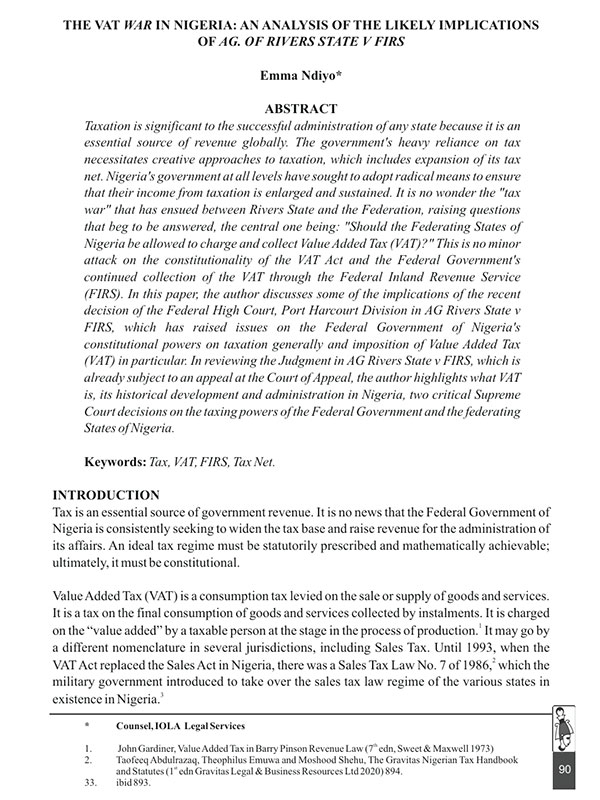
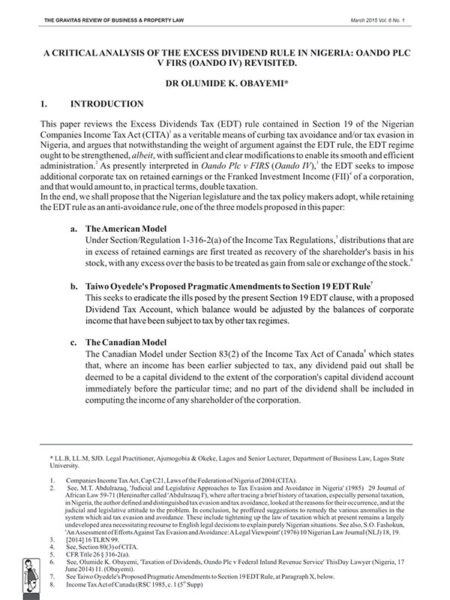
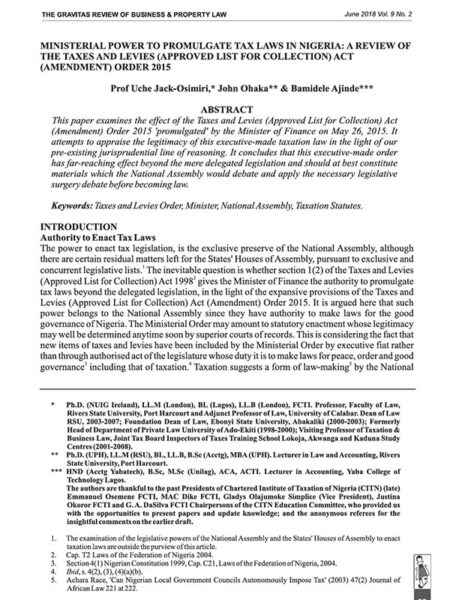
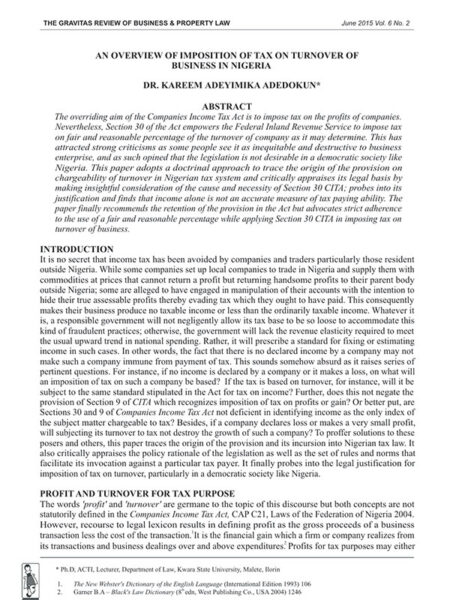
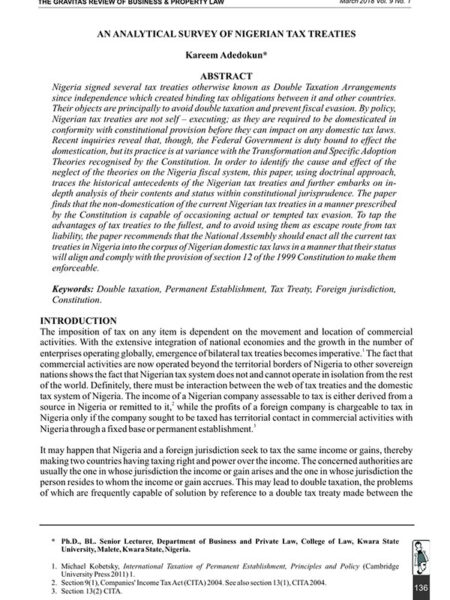


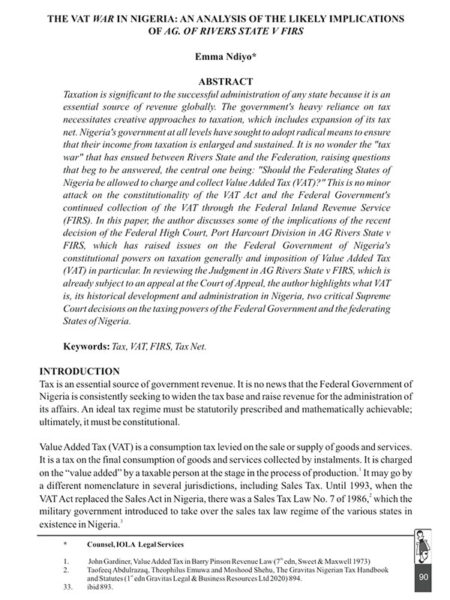
Reviews
There are no reviews yet.